Mozambique: Chapo calls for transparency in public administration
Mozambique: Former president to testify in ‘hidden debts’ trial on Thursday
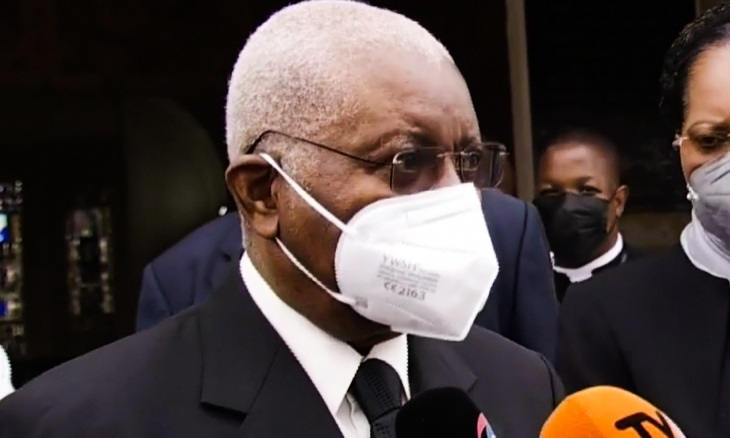
File photo: O País
Former Mozambique president, Armando Guebuza, is on Thursday to testify as a witness in the trial of the hidden debt case, so becoming the first former head of state the country’s history to be heard in court.
Guebuza’s participation has been authorised by Mozambique’s Council of State, which responded to a request from the Supreme Court, as mandated by law when it comes to hearing a former president.
When he takes his seat in the tent that the Maputo City Judicial Court has set up at the city’s Maximum Security Penitentiary Establishment (EPMS) – popularly known as the BO – to ensure there is the space to stage the mega-trial, the former head of state (who served from 2005 to 2015) will be the protagonist in the most awaited hearing in this case.
Public prosecutors have called on Guebuza to testify because as president he was also head of the government that issued guarantees that allowed public enterprises Empresa Moçambicana de Atum (Ematum), Proíndicus and Mozambique Asset Management (MAM) to borrow $2.7 billion (€2.3 million) from foreign banks without informing parliament or existing creditors.
The former head of state has already been questioned by a deputy attorney general, in the pre-trial phase of the case, and by a parliamentary committee of enquiry, in 2016.
Although the findings of the parliamentary committee of enquiry were not made public or debated in a full session, part of Guebuza’s statements were published by some media outlets, based on information passed on by members of parliament who spoke under anonymity.
Among these, Guebuza’s statement to the committee that he would do “everything again” in the process that led to the hidden debts, if the circumstances that dictated the need for the loans were repeated, was widely commented upon in public opinion.
The former head of state is reported to have told the committee that the country was at war, with government forces faces the guerrillas of the Mozambican National Resistance (Renamo), the country’s main opposition party, due to the political and military crisis that flared up in the wake of the contested 2009 general elections, which he said required the state to equip itself to prevent the confrontations from spreading.
The discovery of huge natural gas reserves in Cabo Delgado province, in the north of the country, he is reported to have argued, could attract insurgent movements which could call into question the country’s sovereignty. This scenario also demanded the equipping of the Defence and Security Forces (FDS), Armando Guebuza said on the occasion, according to reports brought by Mozambican media.
It is in this context that the current fighting in Cabo Delgado, with armed groups that the authorities classifie as terrorists clashing with government forces, has been contextualised.
Read: Former President Guebuza says he would do the same “today’ in relation to hidden debts
A former director of economic intelligence for Mozambique’s State Information and Security Service (SISE), António Carlos do Rosário, who is a defendant in the case, has stated in court that the companies that received the money from the hidden debts had a military component, in addition to the commercial dimension of their activity, and that some of the bank loans went to purchase defence equipment.
Guebuza is to testify after his eldest son, Armando Ndambi Guebuza, was questioned as a defendant in the case.
Ndambi Guebuza told the court that his father’s successor as head of state, Filipe Nyusi, should also be heard by the court, because he was minister of national defence and coordinator of the Defence and Security Forces (SDS) operational command that approved the Integrated Monitoring and Protection System (SIMP) for the country’s the exclusive economic zone.
The prosecution considers that the SIMP was the pretext found by those who set up the hidden debts scheme to mobilise the equivalent of €2.3 billion to finance a gigantic corruption scheme.
António do Rosário and Gregório Leão, a former director of SISE and also a defendant, have also indicated Nyusi as having actively participated in the approval of the SIMP and in finding the banks that disbursed the funding.
The judge in the case, Efigénio Baptista, has said that the investigation found no evidence of crimes committed by Nyusi and Guebuza, and that the accounts of the former head of state and his family had all been traced. Baptista noted that evidence was found that only Ndambi Guebuza received $33 million from Privinvest, the shipyard group accused of making bribe payments funded by money from the hidden debts.
Armando Guebuza will be the first former president to be heard in court in Mozambique. On social media there is already talk that the country will all but grind to a halt to watch him live on television during the broadcast of his interrogation as a declarant.
Guebuza will be the last declarant to be heard in the trial, followed by the scheduling of the dates for closing arguments and the reading of the sentence.


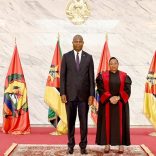
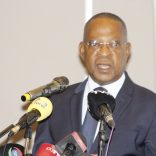
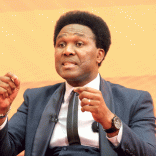
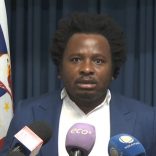
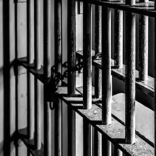
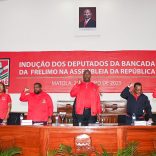
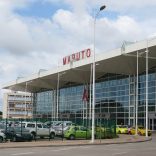



Leave a Reply
Be the First to Comment!
You must be logged in to post a comment.
You must be logged in to post a comment.